In March, MCC signed an agreement with the Prey Veng Department of Education to facilitate Peace Clubs during Primary School Life Skills classes and train Primary School Teachers on the operation of Peace Clubs. This agreement includes a sustainability plan with the Primary Schools gradually taking on more responsibility for the Peace Clubs and eventually running them independently.
It’s a great step forward for us to have the Provincial government signed on for the Peace Club initiative. I really appreciate the hard work of our team – especially Mok, Mainza, and Maly – to make it happen.
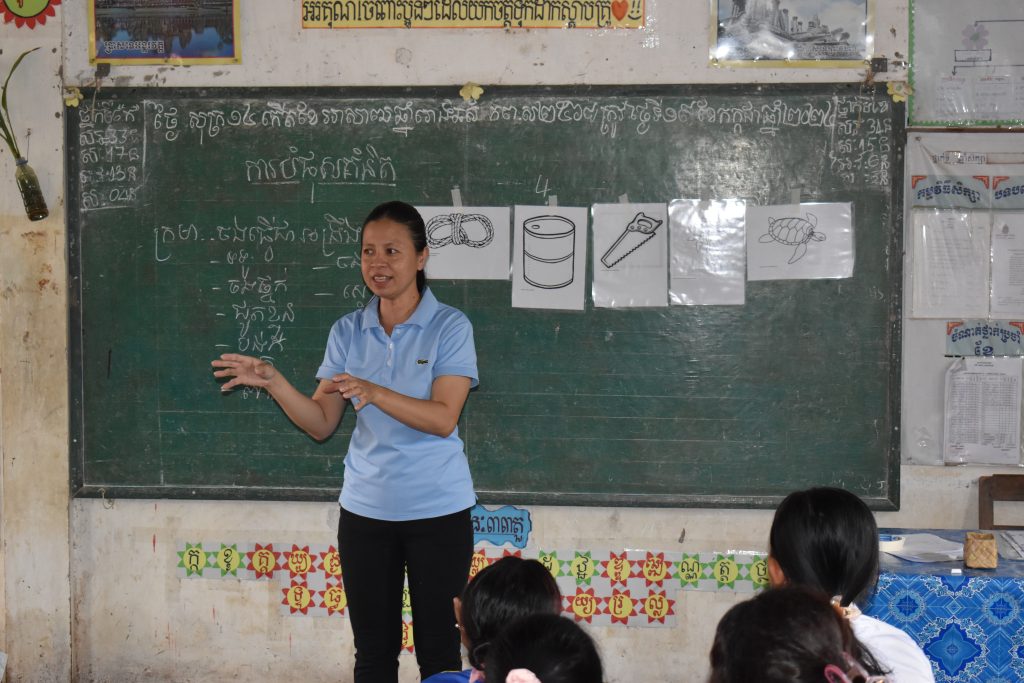
In evaluations and reviews we often get the feedback that MCC’s strength is our relationships. But I don’t know that we talk enough about the things we do to plant the seeds of those relationships and cultivate them. I thought it might be helpful to go into this topic more directly focused around our education work.
Signs marking the successful completion of a NGO project are a common sight in rural communities across Cambodia. However, in my experience, when asked community members rarely know anything about the NGO that left the sign. MCC wants to have relationships with the communities where we work. We want these communities to be more than just a name on a check list and for MCC to be more than just another logo on a project completed sign. We want MCC to know the community and for MCC to be known by the community. On a practical level, this helps build community support for our work and ensures stronger safeguarding and child protection. It also lets us see vulnerable people and unexpressed needs. On a deeper level though, this approach is how we can demonstrate God’s love for all people – regardless of nationality, ethnicity, gender, age, socioeconomic status, and so on.
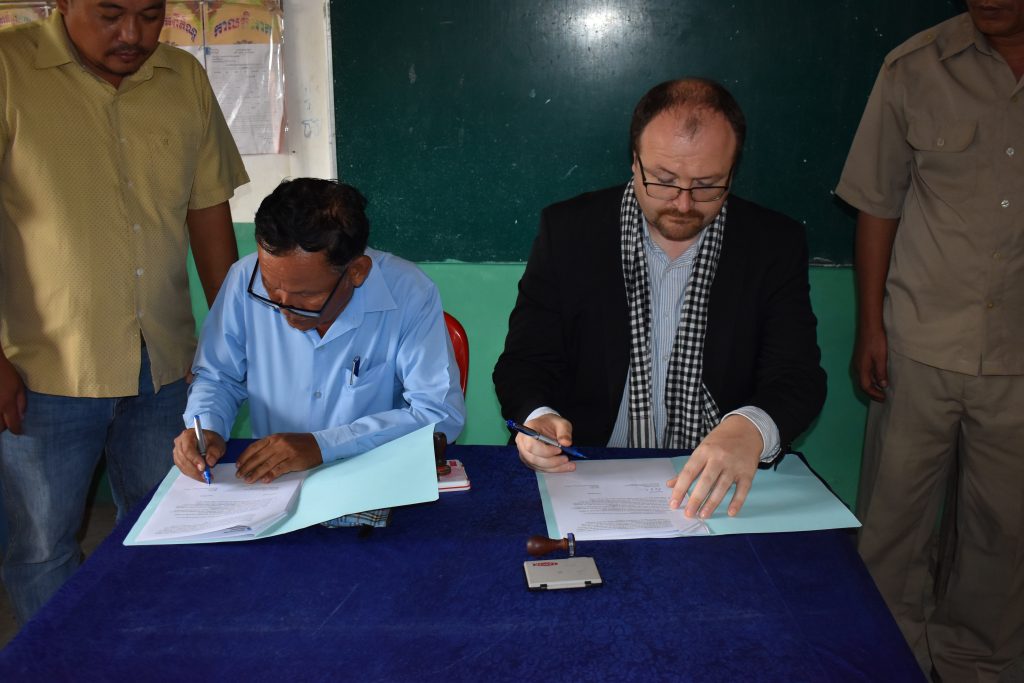
In June we organized signing ceremonies with the individual schools that included the Commune Chief’s Representative, the District Education Officer, School Management Committee leaders, and others. I joined these meetings to sign the individual agreements with each Primary School.
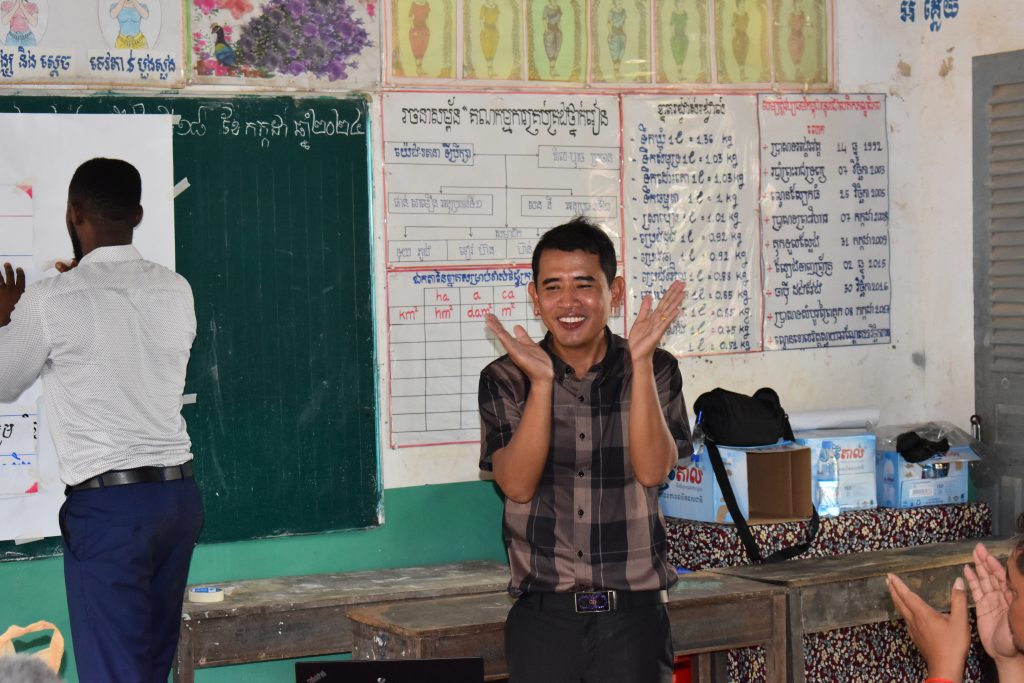
Before we signed the agreement at each school, Aim Mok, MCC Monitoring Evaluation and Reporting Coordinator, lead a brief presentation introducing MCC to the community, outlining the project process, and explaining the project rationale. This started MCC’s relationship with each school off strong as the assembled group – including Teachers, Local Government Officials, and Community School Support Committee members – got to know who we are, what we’re hoping to accomplish, how we connected with them, and what they can expect in the future. There was also space for their questions.
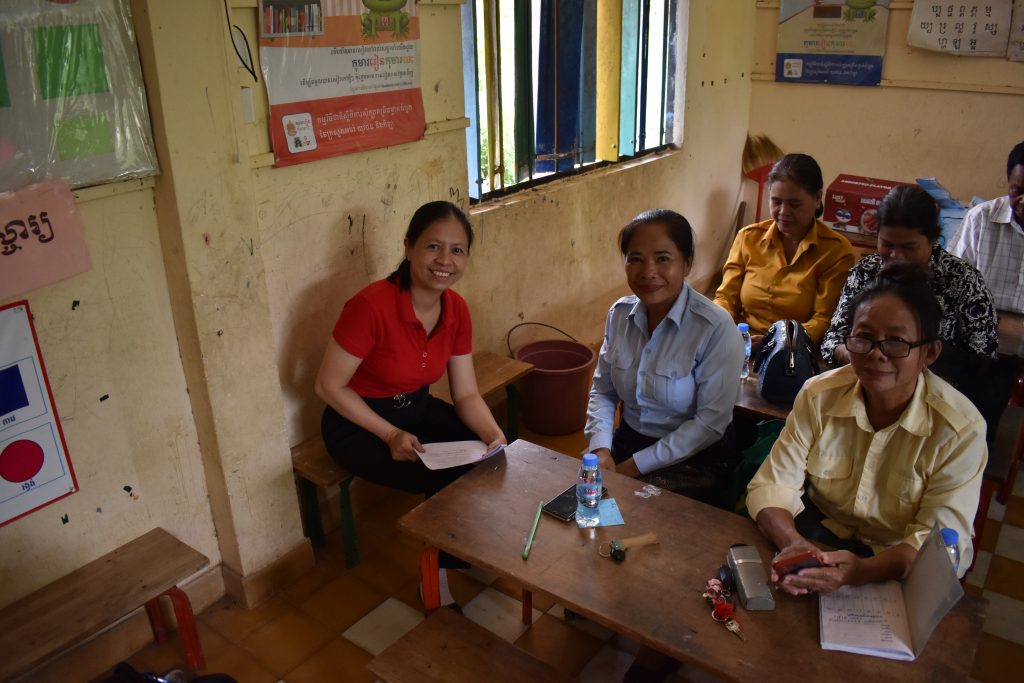
In Cambodia, it is very unusual for a “Country Director” at an “international NGO” to attend a small community level event like this. It’s almost unheard of for a foreign “Country Director” to visit the countryside without an interpreter. Which are all things that I have appreciated about MCC. MCC practices a ministry of presence. I saw it from the MCC Representatives and MCC workers during my first term. I try to model it now. As much as they were able – not everyone can learn a new language, some people have food allergies, limitations on how much they can travel, and so on, but everyone can find a way to demonstrate God’s love – they were present in the community, ate the local food, worked to know the community and become known by them, spoke the local language and traveled like local people. Living in the capital during my current term of service, I’ve become much more aware of how many international NGO workers live in an “expat” bubble and rarely interact with what I would call the Cambodian experience. But MCC workers live more like the missionaries we know – immersed in the local community, attending a local church, and – each according to their ability – living like a local person. It’s a blessing to serve with an organization that values and supports this kind of engagement. To be clear, not every country program can become this immersed – certainly, on our end, our ability to connect directly with communities in Myanmar is very limited due to the conflict – and MCC is not entirely unique in this approach, but in my experience NGOs taking a ministry of presence approach are definitely a minority.
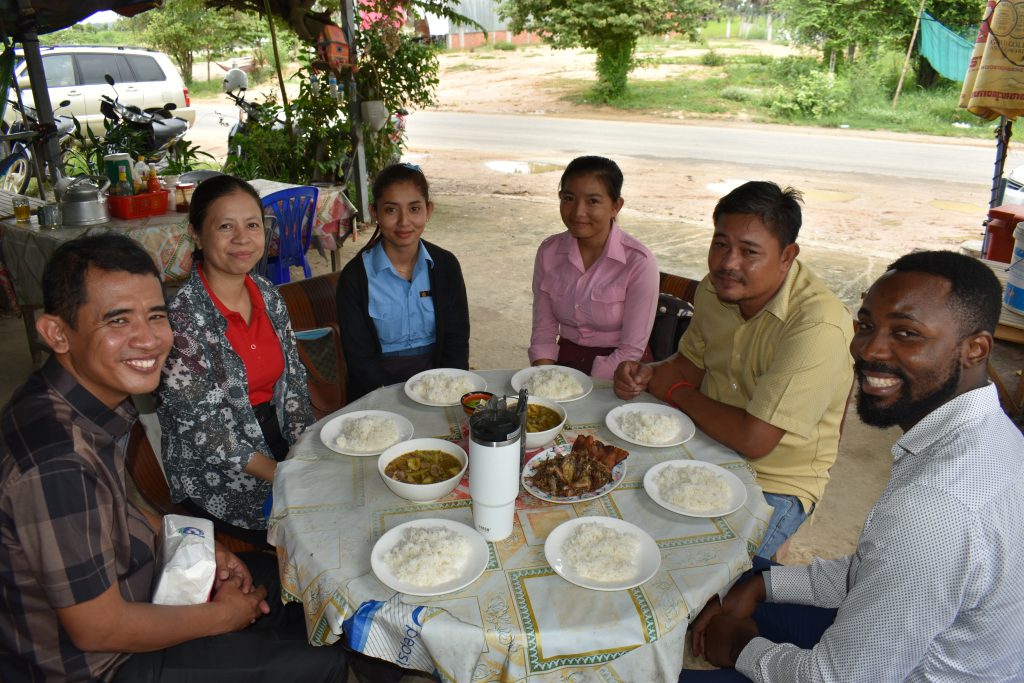
During this trip I had the pleasure of giving a speech in Khmer at each of the schools. I really enjoy speaking Khmer in front of a group of Cambodians who don’t know me because they are always very surprised. The high point of my speech was noting – based on my experience living in the province for three years – that Prey Veng food is more delicious than Phnom Penh food because it is strongly flavored with lots of prahok. It was fun to see their surprised looks give way to smiles and laughs.
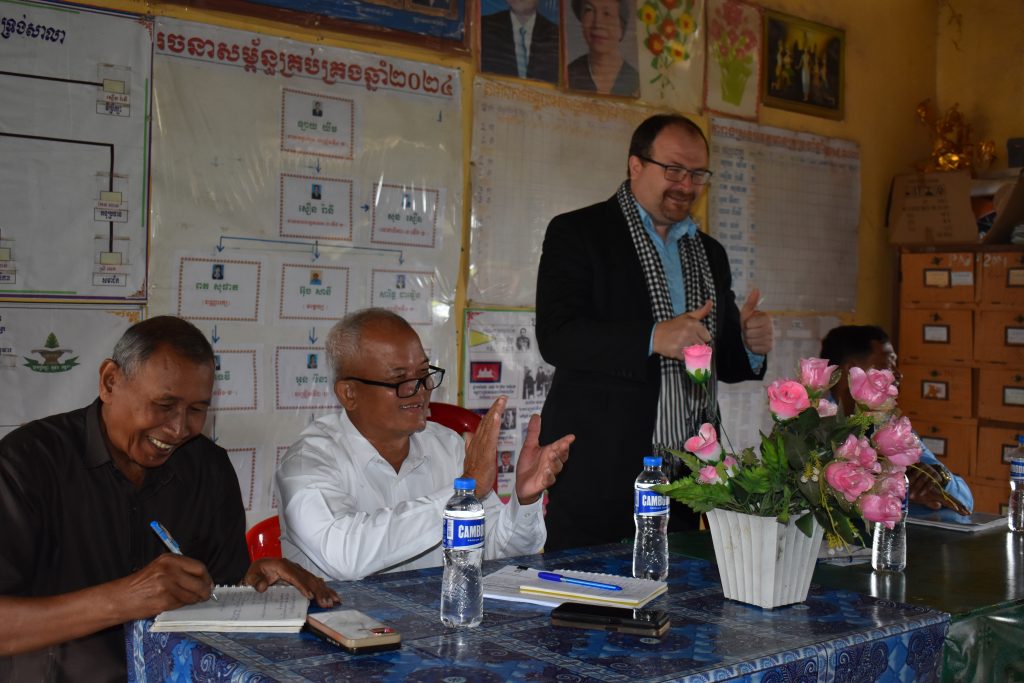
At two of the schools we had lunch together afterwards and of course they made sure to serve very strongly flavored food to see how I’d respond. Fortunately I wasn’t bluffing.

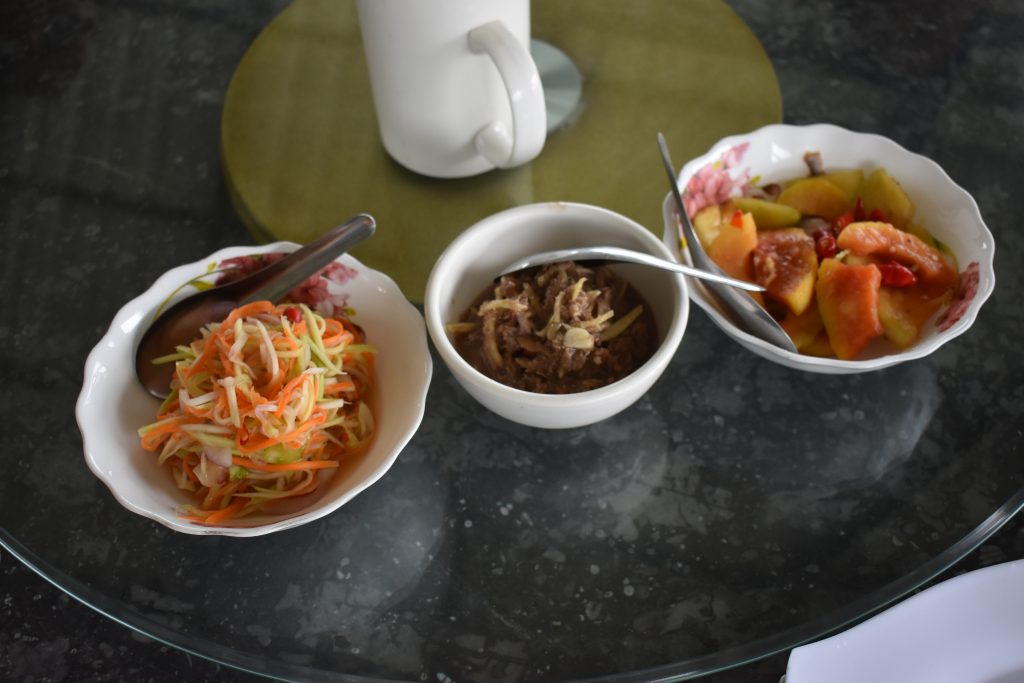
During my first year in Cambodia – 2006 to 2007 – I often felt so frustrated that the MCC Representative at the time would not hire an interpreter for team working in the province. We were trying to move things forward but were held back by our very limited Khmer language. Again and again, the answer was that a core part of our work was to learn Khmer language. I had the attitude that I had come to help – to do. Of course I wanted learn Khmer but, in my head, I thought I had so much to do and only three years to do it in. I felt like I was failing to accomplish what God had called me to do – not understanding that God sometimes calls us to be.
Later in my term, when I was a little more mature, I came to appreciate that the MCC Representative had been thinking about how we did our work, not just that it got done. To put it another way, the MCC Representative at the time was thinking about being – a ministry of presence. Not just a list of tasks to check off in the most efficient way possible. Being relational rather than transactional – pursuing a way of working, living, and serving that did not conform to the ways of the world. To put it another way, MCC workers were seeking to demonstrate God’s love by working among people.
In 2008, I was asked to find a rural primary school that was trying to good work with limited resources that could be supported by MCC’s Global Family program. The first time I arrived at Angkearhdei – the village with the primary school that was eventually selected – the people who lived there didn’t know what to think of me. I was clearly not a Cambodian but I came riding on a moto and speaking Khmer. To them, American NGO workers came in air conditioned SUVs with tinted windows, stepped out for five minutes and asked some questions through an interpreter, and then drove off. So the villagers were confused by me and after some discussion they decided that I must be an Indian merchant. I clearly remember them asking defensively in Khmer, “Just what are you trying to sell us?” Over many visits I slowly got to know them and they got to know me. We started by exchanging jokes and simple questions, building trust. Eventually, I was hearing directly about their lives, including some painful stories about migration, abuse, and human trafficking.
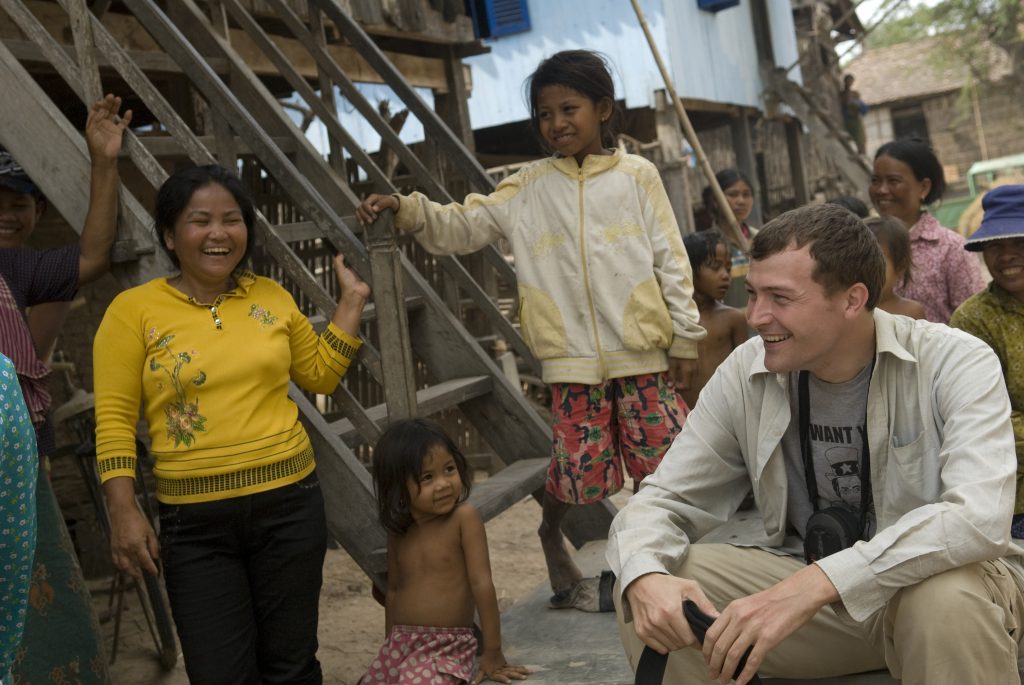
In those moments and in many since I’ve been so grateful for MCC Representative’s insistence that we speak the local language and learn the local ways ourselves. So thank you Larry and Sherry. Sorry that I was impatient back then.
Thanks for sharing all the ways you are engaged in a ministry of presence, offering yourselves and your time, as God’s love is demonstrated and incarnated in your local relationships!